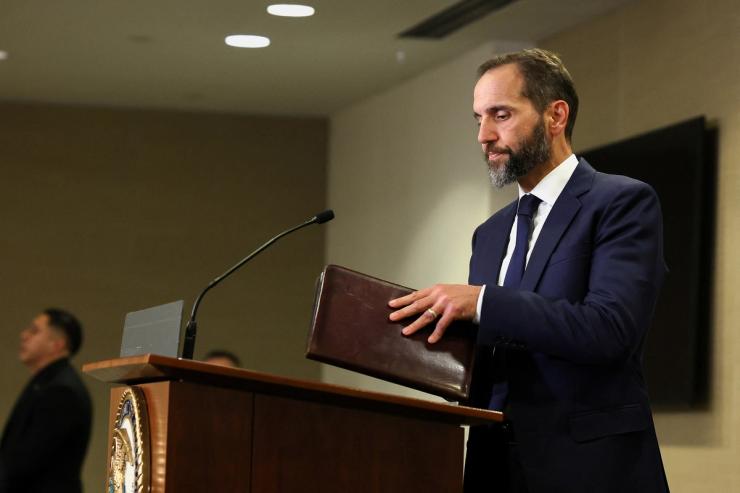The News
Since former President Donald Trump was criminally indicted for the third time Tuesday, legal experts have pored over the new revelations related to Trump’s efforts to overturn the 2020 election, the four charges he’s facing, and possible defenses.
Special Counsel Jack Smith charged Trump with conspiracy to defraud the U.S., conspiracy to obstruct an official proceeding, obstruction of and attempt to obstruct an official proceeding, and conspiracy against rights.
But what he didn’t charge Trump with — namely, incitement of an insurrection — can illustrate how Smith plans to present the unprecedented case.
We’ve curated insights and analysis from experts on the lack of an insurrection charge against the former president.
Insights
- When the Jan. 6 House committee formally referred Trump for criminal charges last year, insurrection was one of the counts included. It would allege that Trump was directly involved in the storming of the Capitol on Jan. 6. But including that charge would’ve complicated the case and been harder to prove than the broader conspiracy charges, Dennis Aftergut, a former federal prosecutor, writes in Slate. “That narrowing increases the prospects for a pre-election trial.”
- One of the reasons an insurrection charge could be complicated: Prosecutors would have to rely on Trump’s speech the day of the riot to prove he was encouraging a riot. That kind of argument could face “potentially tricky First Amendment issues,” former assistant U.S. attorney Randall Eliason writes in The New York Times. Those legal disputes “would have been time-consuming and distracting because the speech could be easily characterized as a political rally.”
- The charge of “conspiracy against rights,” a civil rights law that prohibits trying to deprive someone of their right to vote, can serve as a more straightforward stand-in for an insurrection charge, which is rarely brought in court. The conspiracy charge, on the other hand, has been successfully tested. — Just Security
- There was outsized attention on a possible insurrection charge in part because the Constitution’s 14th Amendment bars anyone who engages in insurrection from holding office. In theory, a conviction would disqualify Trump from serving a second term in the White House. — The Washington Post
- While the lack of an incitement charge simplifies the case against Trump, we’re still in uncharted legal territory, especially given that the defendant is the former president. Smith’s case “requires some unprecedented interpretations of the U.S. criminal code” — including proving that Trump knew he lost the election — and shouldn’t be seen as a slam dunk, Jim Geraghty argues in National Review.


